The first workshop of TheGAME brought together all researchers and staff to present and reflect on what it means to "think like a route."
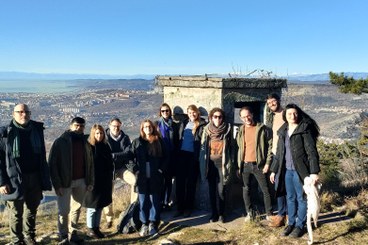
Date:
Event location: Trieste, Italy
Type: TheGAME events
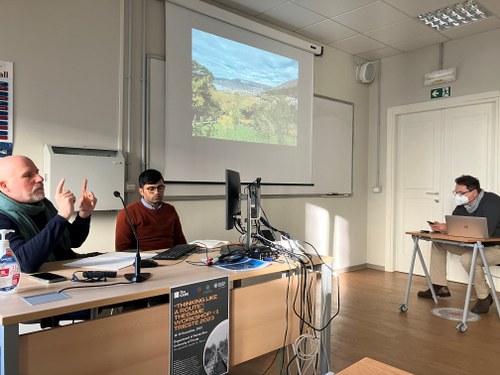
TheGAME's first workshop, "Thinking like a Route," gathered all the affiliated researchers and staff at the Department of Humanities of the University of Trieste, from 18-19 December. Following initial periods of mapping, methodological reflection, and empirical research in sites from Greece to Trieste, this workshop brought together TheGAME scholars and staff as a team.
The objective of the workshop was to think together and explore connections and ruptures across diverse and dynamic sites and consider the im/mobilities which create a route. TheGame researchers presented initial "mappings," regional "dispatches," and methodological considerations, and visited key sites relating to migration in Trieste, to reflect, together, on what it means to think "like a Route." Central to this aim, the workshop facilitated reflection on what it means to countermap, at the most diverse scales and from diverse perspectives, an endlessly re-created, transnational, informal migration corridor like the Balkan Route.
The first session, "Mappings," presented overviews of the route, and formal infrastructures of migration management. Claudio Minca provided an introduction and overview of the Balkan Route, and the approach of the project in studying the route thus far. Lorenzo Vianelli discussed "Mapping Asylum within the Route," drawing comparisons across varied formal asylum mechanisms and their shaping (or not) by international conventions. Yolanda Weima presented "Mapping Institutional Camps in/and the Route," compiling secondary data on formal camps across the Balkans. Finally, Alexandra Rijke reflected on approaches to "Mapping Walls Across the Route.” The framing posited that addressing formal mappings and infrastructure is a necessary step towards countermapping.
The second session presented "Regional Dispatches" based on primary research conducted to-date by TheGame researchers. Evgenia Iliadou presented on the history and present of migration and camps in the Greek Islands, while Valeria Raimondi presented preliminary findings from her very recent research on the Greek Mainland. Claudio Minca and Dragan Umek presented findings from several trips to formal and informal camps in Northern Serbia, and Roberta Gentili traced the changing landscape of opening and closing formal and informal camps in Una-Sana Canton, north-western Bosnia. Together with the first session, these "regional dispatches" began to trace common trends (and ruptures) in the spatio-temporalities of how various actors shape the route.
The second day of the workshop delved more deeply into methodological reflection, beginning with a session on "Methodologies.” In a presentation on "(Counter)mapping and archiving,” Ettore Asoni drew connections between critical approaches to (counter)archiving and (counter)mappings and their possibilities. Emma Farina introduced "Contemporary archaeologies of migration" and how the material traces of (im)mobilities are studied and theorized through archaeological methodologies. Closing the session, Lucija Klun presented another methodological approach, "Walking the route," reflecting on her experience of this method. The session concluded with collective discussion on the possibilities and challenges of these methods in "thinking like route" across the diverse sites and topics of research within TheGame.
The final afternoon, Claudio Minca, Shahid Aziz and Dragan Umek provided context on the "Trieste Endgame," including longer histories of migration, diversity, and contestation in the border city, and the current situation of newcomers and people on the move. Attendees then had the opportunity to visit some of the key sites introduced in this presentation.
Beginning the site visits, the attendees travelled across the border to Slovenia and up the winding road to Castle Socerb, on the plateau overlooking the city and gulf of Trieste, and landscapes beyond. Led by Lucija, they walked in the forest, observed the terrain and the in/visibility of the border, and discussed this key point in refugees' travel. Next, back in Italy nearer to the bottom of the steep escarpment, they walked along a path at the entrance to village Dolina, where we discussed the significance of this place of arrival. From there, the attendees briefly visited two formal sites of asylum seeker accommodation, Casa Malala, and Campo Sacro.
Returning to the city centre, TheGame team members divided into smaller groups to discuss the history and present use of the Piazza della Libertà (adjacent to the train and bus stations), the proximity to the abandoned and delipidated Silos structures, where many people unable to access formal accommodation reside in difficult conditions, and the nearby Centro Diurno (Day Centre).
Finally, back at the university, attendees had the opportunity to discuss their impressions of this introduction to key sites of migration, in relation to the observations and provocations from our presentations. The first workshop concluded with reflection on how to connect various spatial-temporal scales of analysis, the subjectivities created in diverse sites across the route, and ethical and methodological challenges in "thinking like a route."
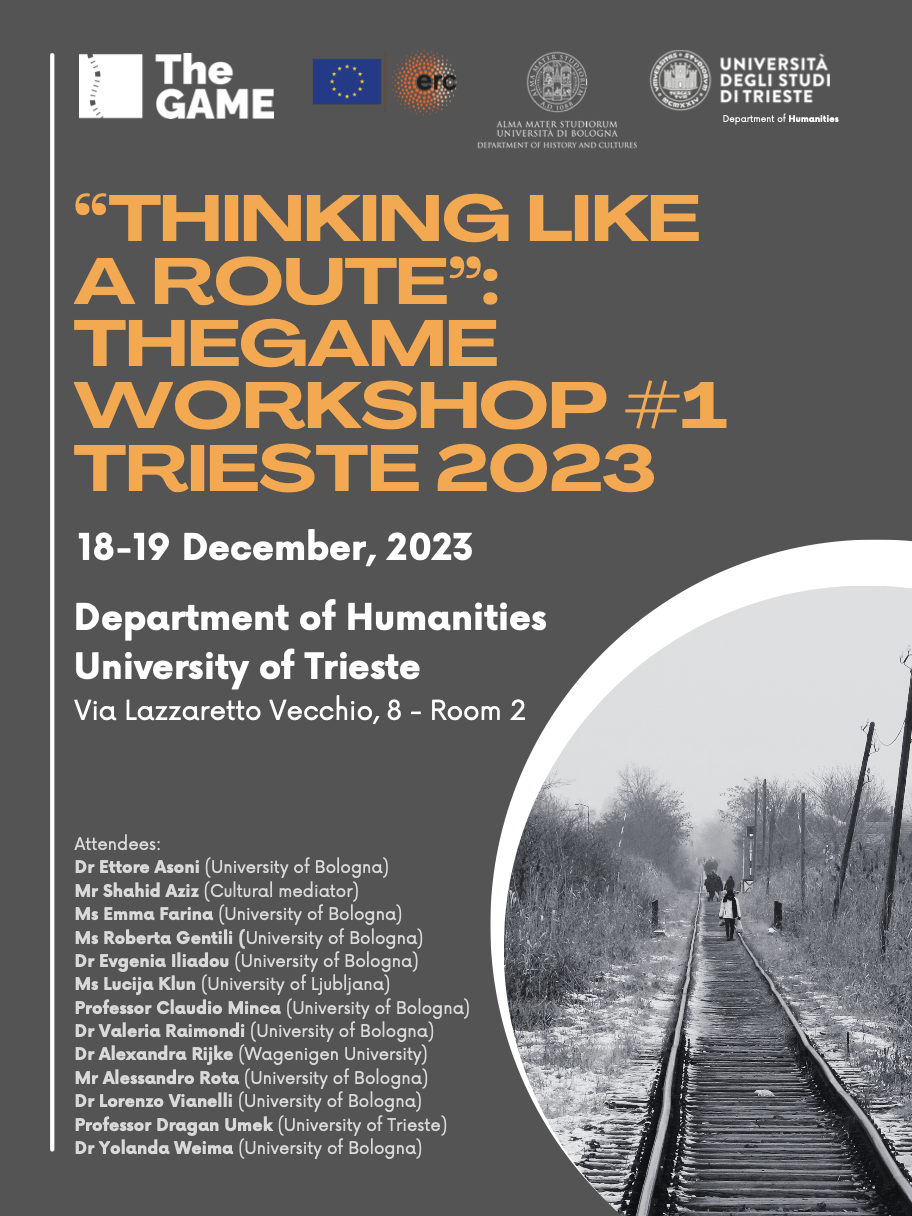
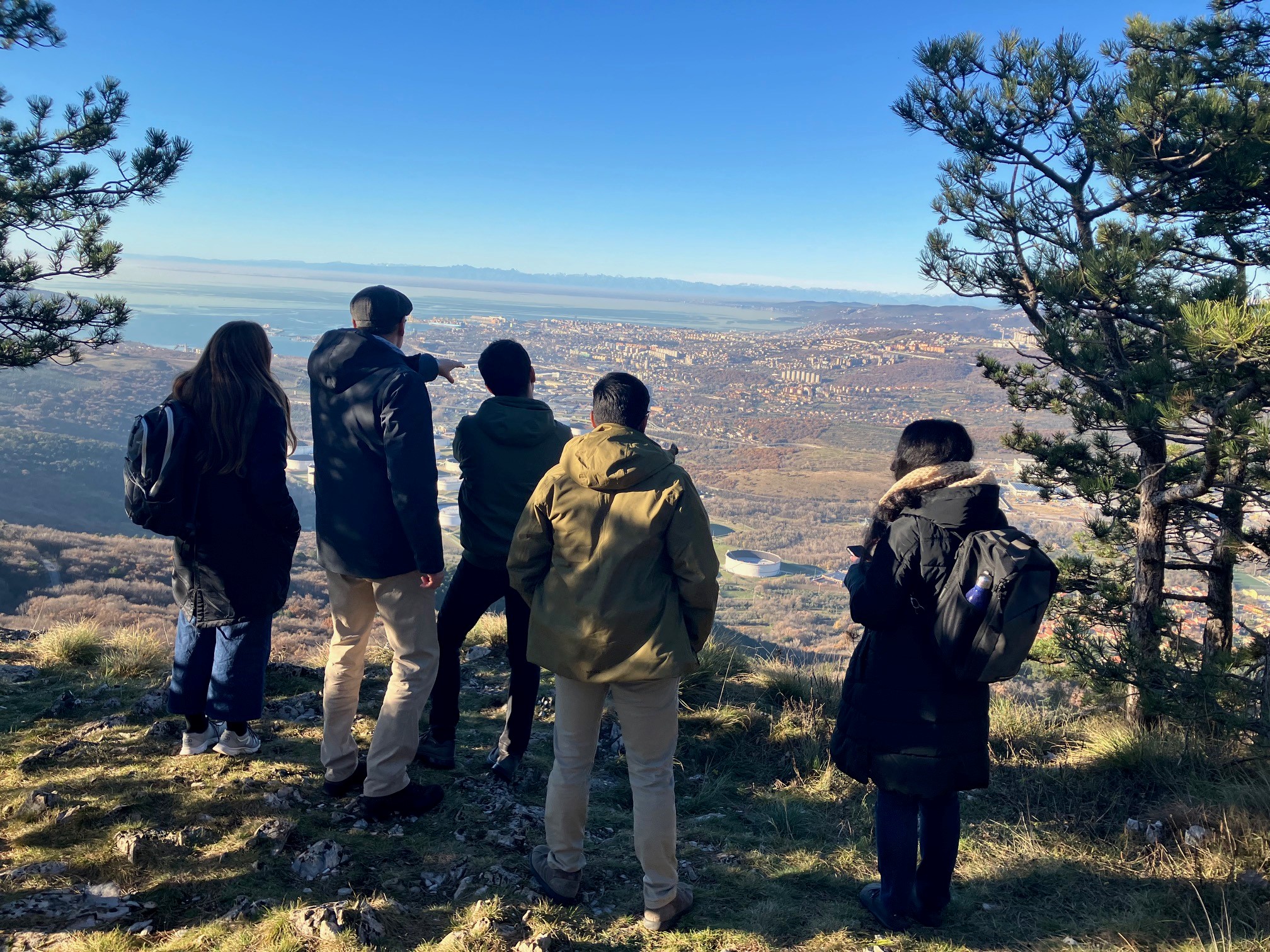
Photos from the workshop and visits to key sites relating to migration in Trieste, Italy
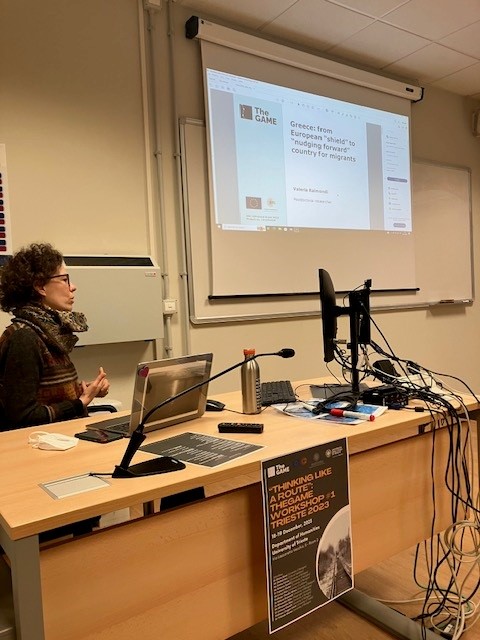
Valeria presents on recent research in Greece
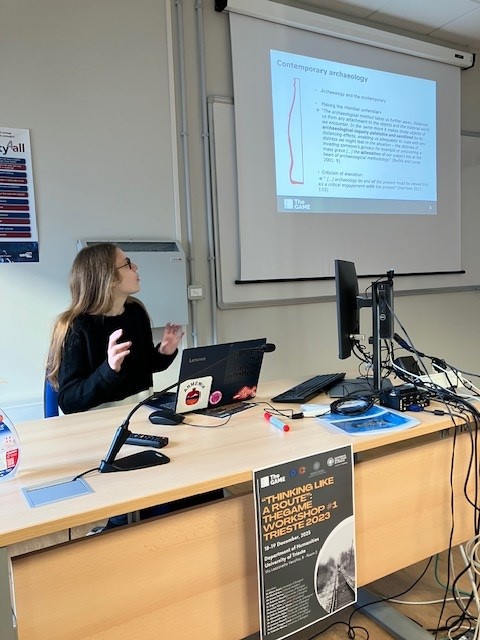
Emma presents on contemporary archeology as a methodology for studying migration